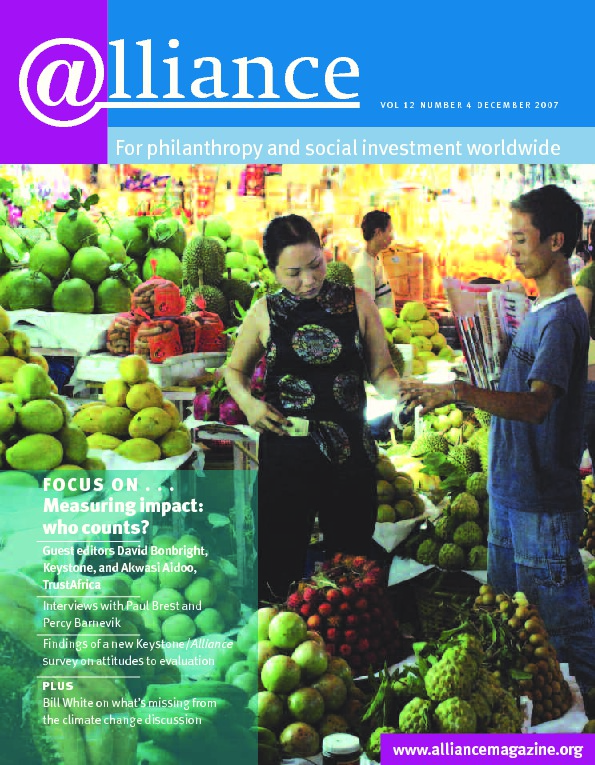The Climate Change Philanthropy Action Network (CCPAN) gathered over 20 new and existing members in Taiwan for its third meeting in September. Participants ranged from corporate foundations to grassroots funders who donate small sums to innovative environmental projects. They came from countries including the UK, Taiwan, India, Hong Kong, the US and Australia. The main themes were how to address climate change in Asia and how to forge partnerships globally.
Presentations by the Khemka Foundation and UBS underscored the importance of thinking strategically about giving to combat climate change (in a later session, the Khemka Foundation also looked at strategic frameworks for philanthropic giving in the climate change space, including an overview of the Design to Win study for prioritizing opportunities). From the NGO side, the World Food Programme described the effects of climate change on their work, and the need for NGOs like them to consider climate change concerns even when it’s not their core mandate.
A presentation by the Pew Center on Global Climate Change highlighted the fact that, with the G8 +5 and other major meetings coming up, now is a crucial time in international negotiations and philanthropists have an opportunity to effect change if they can move quickly. Finally, a presentation by the Balipara Foundation, which is active in northern India, highlighted the need to approach climate change as part of a bigger question of sustainable development that both protects the environment and provides livelihoods for local communities – an issue that will become increasingly important as the focus of climate change moves to developing countries such as India and China.
Three main themes emerged from the meeting: the need to take a holistic approach to environment and sustainability issues, including climate change; the importance of philanthropy considering new roles such as supporting business in finding solutions; and the need to reach out to philanthropists who do not view climate change as core to their mission and to explore how to integrate it into their existing programmes.
Subscribe now from only £45 a year!
This article is only available for our subscribers
Existing users can login here




